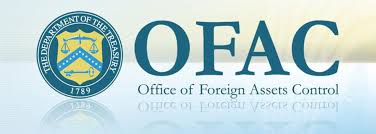OFAC’s New Year’s Eve Settlement with Danfoss for $4.3 Million for Sanctions Violations

Danfoss’ violations involved its UAE subsidiary which directed customers to make payments to its account at the UAE branch of a U.S. financial institution and from which Danfoss made payments to entities in Iran and Syria. Danfoss conducted a total of 225 prohibited transactions. Also, Danfoss did not voluntarily disclose the violations.
Between 2013 and 2017, Danfoss’ UAE subsidiary sold cooling equipment to customers in Sudan, Syria and Iran. Danfoss’ employees instructed these customers to make payments to banks located in the UAE, including Danfoss’ UAE account of a U.S. financial institution. The Danfoss customers arranged with third-party agents (e.g. money exchangers) to pay Danfoss at this U.S.-connected account. The third-party payers were able to disguise the originator or beneficiary of these transactions. As a result, the bank did not block the transactions using its screening filters. These transactions totaled $16,959,683.

OFAC was not able to uncover evidence that Danfoss willfully used the third-party payers to evade the sanctions, Danfoss was aware that using a U.S. financial institution to send or receive payments related to sanctioned countries was prohibited. As an example, Danfoss’ U.S. bank rejected a 2011 payment connected to Iran as a result of an invoices issued in U.S. dollars. Notwithstanding this knowledge and awareness, Danfoss’ continued to use its U.S financial institution in the UAE to collect payments from customers in prohibited jurisdictions until 2017.
OFAC explained that violations were the result of deficiencies in Danfoss’ global sanctions compliance program. Danfoss UAE relied on compliance guidance from Danfoss and Danfoss had no procedures to monitor Danfoss’ activities in the UAE. As a result, Danfoss had no way to identify problematic transactions unless Danfoss UAE contacted Danfoss compliance manager at Danfoss’ headquarters. Danfoss’ UAE and regional staff in the Middle east never received substantive training on U.S. sanctions and did not consult with Danfoss’ compliance manager. As a result of this lack of awareness Danfoss, as a company, failed to focus on these risky transactions.
Danfoss’ U.S. bank identified the violations in May 2017 and notified Danfoss. Danfoss then disclosed the transactions to OFAC but OFAC was already aware of the violations since it had possession of relevant information. As a consequence, OFAC did not award credit to Danfoss for its disclosure.
In assessing the $4.3 million penalty, OFAC noted that Danfoss failed to exercise a due degree of caution or care in complying with U.S. sanctions requirements when it used its U.S. bank account in the UAE to receive payments from and make payments to customers in sanctions jurisdictions. By using third-party payers, Danfoss UAE was not able to screen and reject the problematic transactions. OFAC found no evidence that Danfoss willfully used third-party payers to evade the sanctions.
When alerted to the problem, Danfoss quickly took action to identify the root cause of the conduct. It ceased doing business in Iran, Syria and Sudan. It adopted new and more effective controls, including a new procedure for monitoring and documenting payments to its U.S. bank accounts to identify true originators and reject any payments that originate from a sanctioned jurisdiction. Also, Danfoss updated its export control standards and export control manual to contain sections that specifically cite the responsibilities of all employees to ensure compliance, along with new documentation requirements to ensure compliance. Danfoss implemented training for Danfoss UAE employees to reinforce their obligations under U.S. sanctions and the risks specific to doing business in the Middle East.

OFAC concluded by highlighting the risks to multinational companies, including non-U.S. entities, that involve the U.S. financial system in commercial activity in U.S. sanctioned countries. In addition, OFAC emphasized the importance of maintaining risk-based sanctions compliance programs and training key staff, including senior management to identify and escalate potential violations of U.S. sanctions. Furthermore, OFAC noted the importance of implementing controls specific to the risks posed by the regions in which subsidiaries operate and any risks created by certain business practices, such as accepting payments from third parties.
In particular, OFAC noted that the Danfoss case highlighted the risks associated from use of third-country exchange houses and trading companies acting as money transmitters in support of business with Iran.














